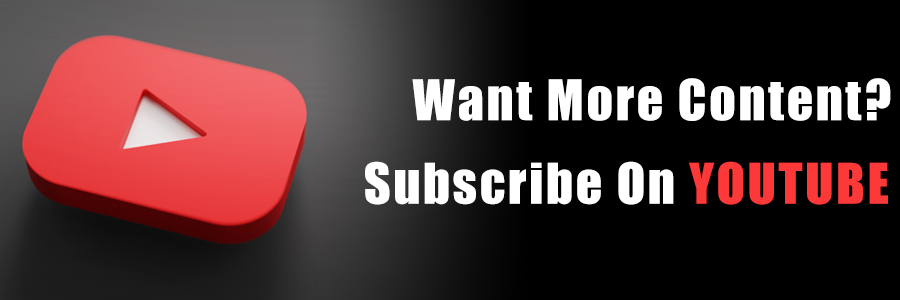“There’s the door.”
This was a common statement the Gay Narcissist said to me whenever I had a problem or wasn’t falling in line with his behavior. He said it often, and I always believed he meant it when he did. It was his way or the highway, and he made no illusions otherwise.
He was right. I did know where the door was—at all times. I won’t pretend otherwise. I also won’t make excuses for why I did not take the Gay Narcissist’s advice and show myself out.
I was terrified of what it meant to leave him and end the Gay Narcissistic Relationship I was enmeshed in it for several years. Where would I go? What would I do? How would I survive? These concerns are ridiculous when reflecting upon them with years of hindsight, but at the time they filled me with very real existential dread.
I’d do anything in my power to ensure the survival of the Gay Narcissistic Relationship and hold onto the Gay Narcissist as my partner.
It does amaze me even today just how much I clung to him, because he had other quotes and lines he’d say to me. Another one of his favorites was Angelica Houston’s cruel quip from Ever After:
“How can anyone love a pebble in their shoe?”
He played the quote off as funny and snarky, and I’m all for snark and gallows-humor. But looking back on the whole mess, the weight of truth in the quote was plain every time he said it. (And it was often.)
The Gay Narcissist told me many times, in many different ways, what I meant to him.
Not a whole hell of a lot.
Time And Perspective
Time is a powerful thing.
Because there was a time when admitting that I meant nothing to the Gay Narcissist would make me physically shake with near-hysteria.
Now, I simply write about it with indifference as I put together this broader story. And that story is my experience in troubled toxic relationships with dysfunctional gay men. The Gay Narcissist and his role in the Gay Narcissistic Relationship is the central plot to that story. He’s not alone, though. There are others.
With that, perspective is another powerful thing.
Some of the most popular keywords and phrases that drive traffic to this website and brings in readers are:
— Narcissists and discard
— Narcissist discard
— New supply
— Why is the new supply better than me
— Will the narcissist come back after discarding me
— Is the new supply better than me
— Will the narcissistic leave the new supply
These are just a few examples.
And while its easy to look at these words with analytical curiosity and nothing more, it’s an absolute guarantee there’s a lot of pain and distress bottled up in the people making these queries. People don’t seek out this information for fun.They do so because they’re lost, hopeless, and absolutely desperate to understand the madness wrecking their lives.
Haphazard Individuation
I say it often, and I will say it again now: I think websites and blogs like mine are important.
No, this is not me jerking myself off. It’s comes from a remembrance of how utterly devastated I really was when the Gay Narcissist finally carried out the Final Narcissistic Discard and installed the New Supply as my replacement. These events happened six years ago this summer.
Six years.
When these events transpired, I didn’t think I’d survive six minutes at a time I was so lost and terrified. I literally thought there was no end to the emotional suffering that filled every cell of my body second to second.
But I did survive.
Even now as I share this, I can cognitively remember the summer when the Gay Narcissist met the New Supply and the Final Narcissistic Discard was set into motion. I swear to you I’m not embellishing at all when I say I felt like I was dying when this all went down.
And now?
All I feel is indifference toward the Gay Narcissist and the the Gay Narcissistic Relationship. I look at these events with intellectual curiosity as I work through my past in my own haphazard process of individuation as a gay man.
Comfort And Consolation
Why, then, do I continue to think and write about this topic?
I’ve thought through several different scenarios concerning this.
Is it that I’m just not over the Gay Narcissist as much as I say I am? Do I simply find it impossible to move on from him and our failed relationship? Am I forever litigating in my head what went on between the two of us, refusing to let the whole thing go?
No, that’s not it.
To be honest, I don’t really think about the Gay Narcissist at all anymore unless I’m specifically writing about narcissism appearing in gay men and affecting gay relationships.
But, then, if I don’t think about it anymore, why am I constantly reopening the wound and thinking about all of this stuff that once brought me so much pain and chaos?
Simple. I’m not reopening anything. I’m thinking about what happened, years later, and reflecting upon that. For that’s exactly what all of this is about for me—an act of self-reflection.
I stayed with the Gay Narcissist for a reason, despite not liking him as a person. I remained in the Gay Narcissistic Relationship for years despite the misery it filled me with. The Gay Narcissist was a selfish and bullying man-child, and the Gay Narcissistic Relationship was a psychic prison.
But I stayed.
Why?
That, too, is simple.
I was (and still am, somewhat) a deeply insecure person. But I was not conscious of this fact back. I was seeking comfort and consolation from others to help me feel better about myself. Not only is this a problem in and of itself, but I was seeking this comfort and consolation from the worst possible candidates. It was the Gay Narcissist who was in it for the long haul until he discarded me for the New Supply.
When I write all of these anecdotes and narratives about my relationship with the Gay Narcissist, it’s not from a place of pain and upset. It’s from a place of reflection and understanding about my own blindspots and weaknesses.
I continue to find this topic interesting, six years later, because I’m still awestruck at just how much power a single individual can wield over another’s life. I firmly believe people can be predatory, and I’m not convinced all of these dysfunctional individuals has an awful backstory we need to cry over. (I am not alone in this. Dr. Joseph Burgo and Dr. George Simon mention this idea in their written work.)
The vast complexities of the human mind fascinates me. And when that turns dark, disturbed, and dysfunctional… it’s a scary thing that summons up my morbid curiosity. But beyond that, it’s important to understand what’s going on to protect yourself.
Honest And Thorough Anecdotes
One of the points I return to often in my writings is the nature of the words “narcissism” and “narcissist” and “narcissistic relationship.”
When I emerged from the Gay Narcissistic Relationship and started piecing together my experiences, I held onto the words of “narcissism” and “narcissist” like they were my only anchor to sanity. I said them often and with complete conviction, like a baby babbling its first words. Because without those words and their meanings, everything crumbled. Everything was my fault once again, and if I only tried harder, then it would have worked out.
I was fully embroiled in the Diagnosis Obsession, because I wanted the Gay Narcissist to be a “clinical” narcissist so I could have some kind of scientific claim that I was “right” and he was “wrong.”
It took a long time for me to realize how much that does not matter.
The worry over diagnosing personality disorders is stupid. What we need to worry about is how a person behaves. Behavior is everything. You have every right in the world to observe another person’s behavior and then distance yourself if the behavior is harmful.
It’s a good thing narcissism is not a diagnosis at all, so feel free to find solace in the word.
But there are other good words, too:
— Toxic
— Dysfunctional
— Manipulative
— Pathological
— Antagonistic
— Disturbed
Just because some of these words are used in psychology and psychiatry does not mean they are owned by psychology and psychiatry.
As for my own use of the words “narcissist” and “narcissism” and “narcissistic relationship” on this website—they used to be sacrosanct.
Now I see these words in alignment with so many other descriptions of bad pathological behavior. I could easy call the Gay Narcissist the “Gay Antagonist” or the “Gay Manipulator,” but there are pragmatic SEO considerations to make. Plus, I’ve grown fond of the epithet, as it’s quite poignant and topical.
The one book that shifted how I see this entire topic is Dr. George Simon’s Character Disturbance, and I cannot recommend it enough; you should pick it up and read it. (Please use this affiliate link to do so.)
He discusses narcissism, but he classifies it as a kind of character disturbance. And again, it all comes down to the behavior a person engages in.
This is why I’m still writing about narcissism.
I think honest and thorough anecdotes are important in understanding these dark and dysfunctional patterns of behavior. And I think its vital to look at these topics from different angles to get away from the Diagnosis Obsession.
That, and it’s just so damn interesting.




